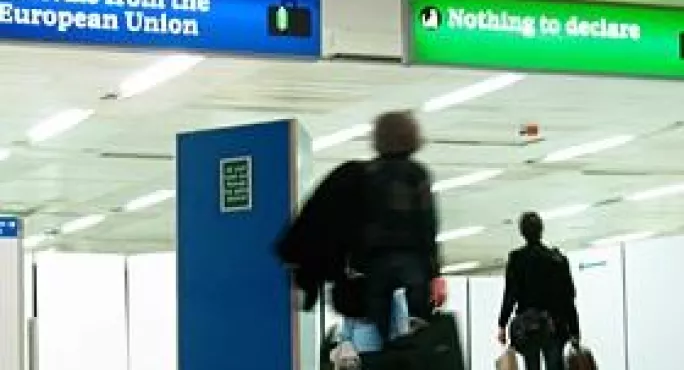‘Credibility interviews’ slam door on immigration

While the international student market is well established in higher education, many further education institutions are only now making their first forays into this lucrative area.
But just as the market starts to expand, providers in the UK claim that new rules drawn up by the government to clamp down on immigration are putting off large numbers of prospective overseas students.
From June, foreign applicants wishing to study at colleges or universities in the UK will have to take part in “credibility interviews”, either face to face or via video link, with Home Office officials. The process is designed to test their English skills but also to determine whether they are genuine students or simply seeking to gain entry to the country.
More than 100,000 interviews will take place every year as part of a government pledge to cut net migration and stop people using the education system as a “back door” into the country. But at an international further education conference held by the Association of Colleges in London this week, it was claimed that the new process could be a significant disincentive for many potential students.
The UK Council for International Student Affairs spoke to 83 institutions after the pilot interviews earlier this year. Its director of services and research, Beatrice Merrick, said that a “disproportionate” number of students interviewed by the Home Office were from the further education sector, and that colleges reported concerns about fairness, consistency and transparency.
Overseas students are starting to perceive the UK more negatively, she warned, as they feel that they are being made to jump over more and more hurdles to study there.
Peter Walker, director of commercial and international development at the Guildford College Group, which has about 1,000 foreign students, claimed that the measure could cost the further education sector millions of pounds.
Mr Walker, whose college accepts significant numbers of students from China, said that the story had been widely reported on Chinese television in a critical manner.
“As a result, many Chinese students now believe the new system is designed to catch them out,” he said. “This will be a huge disincentive. We have been caught in the middle and for us it is now about damage limitation.”
The problem of international students breaching their visa requirements is not confined to the UK. Many Western countries, particularly the US and Australia, report similar immigration headaches. The US Department of Homeland Security is taking steps to tighten the country’s immigration system because of fears that many students remain in the country after their visas have expired.
However, last year, Germany introduced a new visa system to make it easier for non-European Union students to stay in the country and find work after graduating. The Blue Card scheme allows students to work while they study and gives them 18 months to find a job after they graduate.
Peter Brown, former assistant principal of Chichester College in England, accused the Home Office of being responsible for the “destruction” of the international further education market and urged officials to listen to the sector and acknowledge the difficulties that it is facing.
But Bharat Pamnani, assistant director at the Home Office, defended the process. “It is about the credibility of the applicant and making sure they are coming to the UK to do a particular course,” he said. “The questions are based around what the applicant has said in their application, the qualifications they have gained, what course they want to do and how they got accepted.
“It is not about trying to trip them up or asking questions that have nothing to do with their application.”
However, he warned UK colleges that “many more” of their prospective students would be interviewed from June, and that institutions should also anticipate unannounced Home Office audits.
Photo credit: Alamy
Keep reading for just £1 per month
You've reached your limit of free articles this month. Subscribe for £1 per month for three months and get:
- Unlimited access to all Tes magazine content
- Exclusive subscriber-only stories
- Award-winning email newsletters



